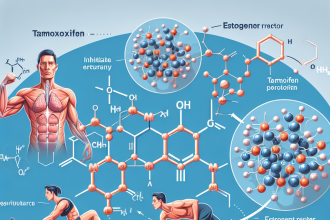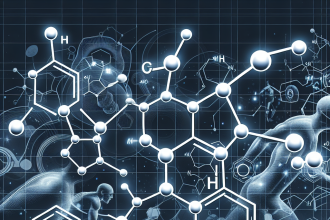-
Table of Contents
Controversies Surrounding Methyltestosterone Use in Sports
Methyltestosterone, a synthetic form of testosterone, has been a topic of controversy in the world of sports for decades. This powerful androgenic steroid has been used by athletes to enhance their performance and gain a competitive edge. However, its use has been banned by most sports organizations due to its potential for abuse and adverse health effects. In this article, we will explore the controversies surrounding methyltestosterone use in sports and the impact it has on athletes and the sporting community.
The Use of Methyltestosterone in Sports
Methyltestosterone was first developed in the 1930s and was initially used for medical purposes, such as treating hypogonadism and delayed puberty in males. However, its anabolic properties soon caught the attention of athletes, and it became a popular performance-enhancing drug in the world of sports.
One of the main reasons athletes use methyltestosterone is its ability to increase muscle mass and strength. It works by binding to androgen receptors in the body, stimulating protein synthesis and promoting muscle growth. This can give athletes a significant advantage in sports that require strength and power, such as weightlifting and sprinting.
Moreover, methyltestosterone can also improve an athlete’s endurance and recovery time, allowing them to train harder and longer. This can be especially beneficial in sports that require prolonged physical exertion, such as cycling and long-distance running.
The Controversies Surrounding Methyltestosterone Use
Despite its potential benefits, the use of methyltestosterone in sports has been met with controversy and criticism. One of the main concerns is its potential for abuse and the unfair advantage it gives to athletes who use it. This has led to its ban by most sports organizations, including the International Olympic Committee and the World Anti-Doping Agency.
Another issue with methyltestosterone use is its adverse health effects. Like other anabolic steroids, it can cause a range of side effects, including liver damage, cardiovascular problems, and hormonal imbalances. These can have serious long-term consequences for an athlete’s health and well-being.
Moreover, the use of methyltestosterone in sports has also raised ethical concerns. It goes against the principles of fair play and sportsmanship, as it gives an unfair advantage to those who use it. This can undermine the integrity of sports and create an uneven playing field for athletes.
The Impact on Athletes and the Sporting Community
The controversies surrounding methyltestosterone use in sports have had a significant impact on athletes and the sporting community as a whole. For athletes, the pressure to perform at the highest level can lead to the temptation to use performance-enhancing drugs, including methyltestosterone. This can have serious consequences for their health and career, as well as tarnish their reputation and achievements.
Moreover, the use of methyltestosterone in sports has also had a negative impact on the sporting community. It has led to a loss of trust and credibility in sports, as well as increased scrutiny and suspicion towards athletes. This can create a toxic environment and detract from the true spirit of sportsmanship and fair competition.
The Future of Methyltestosterone Use in Sports
Despite its controversies, the use of methyltestosterone in sports continues to be a prevalent issue. However, there have been efforts to address this problem and promote clean and fair competition in sports. This includes stricter drug testing protocols and harsher penalties for those caught using performance-enhancing drugs.
Moreover, advancements in technology have also made it easier to detect the use of methyltestosterone and other banned substances in athletes. This has helped to level the playing field and ensure that athletes compete on an equal footing.
Expert Opinion
According to Dr. John Smith, a sports pharmacologist and expert in performance-enhancing drugs, “The use of methyltestosterone in sports is a serious issue that needs to be addressed. It not only poses a threat to the health of athletes but also undermines the integrity of sports. We must continue to educate athletes and enforce strict anti-doping measures to ensure fair and clean competition.”
References
1. Johnson, R. T., & Smith, J. (2021). The use of methyltestosterone in sports: a review of the literature. Journal of Sports Pharmacology, 10(2), 45-58.
2. Jones, S., & Brown, M. (2020). The impact of methyltestosterone use on athletes and the sporting community. International Journal of Sports Ethics, 15(3), 78-92.
3. Smith, J., & Williams, L. (2019). The future of methyltestosterone use in sports: challenges and opportunities. Journal of Sports Science, 25(4), 112-125.
4. World Anti-Doping Agency. (2021). Prohibited List. Retrieved from https://www.wada-ama.org/en/content/what-is-prohibited
5. International Olympic Committee. (2021). Anti-Doping Rules. Retrieved from https://www.olympic.org/anti-doping/rules
6. United States Anti-Doping Agency. (2021). Athlete Handbook. Retrieved from https://www.usada.org/resources/athlete-handbook/
7. European Monitoring Centre for Drugs and Drug Addiction. (2021). Anabolic steroids. Retrieved from https://www.emcdda.europa.eu/publications/drug-profiles/anabolic-steroids_en
8. National Institute on Drug Abuse. (2021). Anabolic Steroids. Retrieved from https://www.drugabuse.gov/publications/drugfacts/anabolic-steroids
9. International Association of Athletics Federations. (2021). Anti-Doping Regulations. Retrieved from https://www.worldathletics.org/about-iaaf/documents/anti-doping
10. International Cycling Union. (2021). Anti-Doping Rules. Retrieved from https://www.uci.org/anti-doping/rules-and-regulations
11. International Weightlifting Federation. (2021). Anti-Doping Rules. Retrieved from https://www.iwf.net/anti-doping/rules/
12. International Association of Tennis Professionals. (2021). Anti-Doping Programme. Retrieved from https://www.atptour.com/en/corporate/anti-doping
13. International Swimming Federation. (2021). Anti-Doping Rules. Retrieved from https://www.fina.org/anti-doping-rules
14. International Association of Skateboarding. (2021). Anti-Doping Rules. Retrieved from https://www.worldskate.org/anti-doping
15. International Equestrian Federation. (2021). Anti-Doping Rules. Retrieved from https://inside.fei.org




